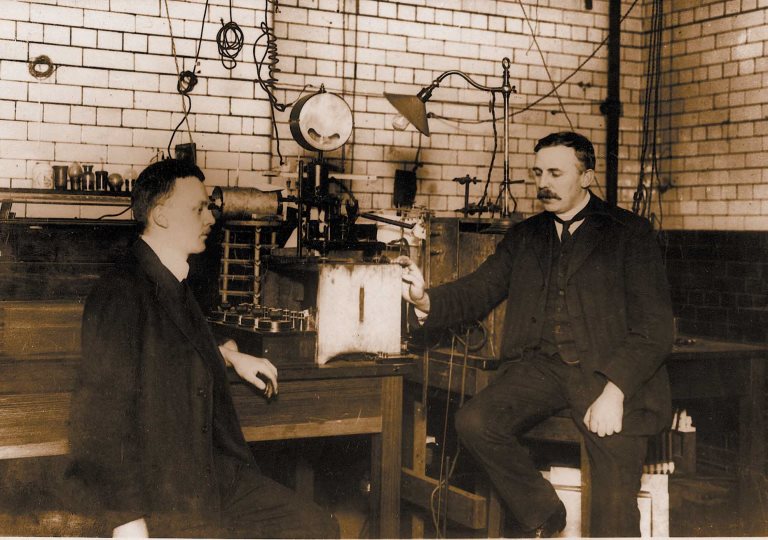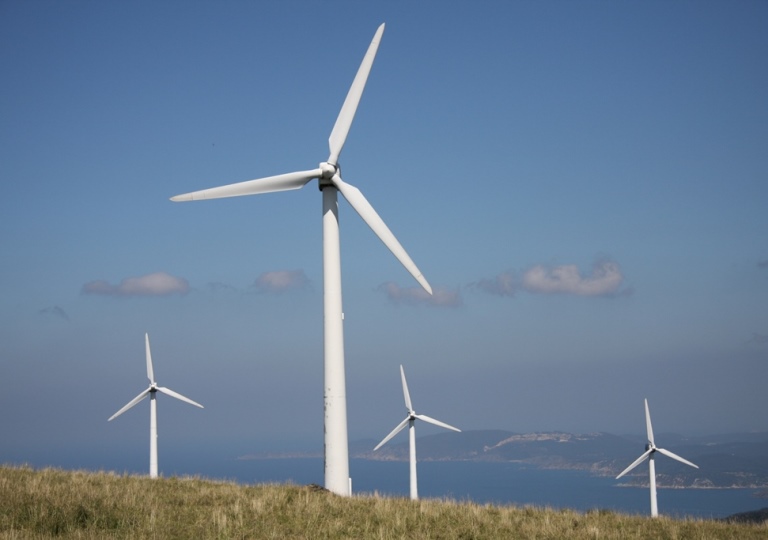Climate change is one of the biggest threats to humanity. At Manchester, we are committed to tackling it head on, finding new sustainable sources to fuel our future.
With climate change, we recognise that there’s not going to be one simple answer Share on X
We are exploring every possible avenue to find new sustainable energy sources Share on X
The University of Manchester has a rich history of nuclear research Share on X
Improved technology and standards of living mean that we need more energy than ever before. We know that traditional sources of energy, such as fossil fuels, emit too much carbon, and we can’t continue to use them without doing huge and irreversible damage to the natural world.
There are two possible solutions: find a new, low-carbon energy source; or find ways to reduce the amount of energy we use.
At Manchester, we believe that both of these solutions hold the key to a better future, and it’s something we take very seriously. Energy is one of our five research beacons, areas of ground-breaking knowledge where we are making a huge difference. With such a broad challenge like energy and sustainability, we recognise that there’s not going to be one simple answer. So, we are exploring every possible avenue to find new sustainable energy sources, and ways to reduce our energy consumption.
Meeting the nuclear demand

The University of Manchester has a rich history of nuclear research. Ernest Rutherford, who came to be known as the father of nuclear physics, first split the atom right here on campus in 1917. A century on, Rutherford’s legacy is very much still alive.
The demand for low carbon energy is set to soar in the coming years, and nuclear is one of the main ways this demand can be reached. Nuclear power generation is set to double by 2035, so it is clear that the world-class research is needed to meet this demand.
Our nuclear research is conducted through the Dalton Nuclear Institute, the largest and most connected academic provider of nuclear research and development in the UK.
The institute is a world-leader in nuclear research. In 2012, we won the Queen’s Anniversary Prize for the outstanding quality of work in this area.
Pioneering the biofuels of the future
We recognise that nuclear alone cannot meet the global demand for low carbon energy. That’s why we’re pioneering research into alternate energy sources such as biofuels.
The European Commission believes that biomass could supply two-thirds of European renewable energy by 2020. However, there are concerns that the low-efficiency of current biofuel production means that they may not deliver any meaningful carbon savings.
We have a team of 60 core researchers at Manchester tackling this issue head on. They are engaged in cutting edge research looking at potential sources of energy like algae and yeast, and how we might be able to improve the efficiency of these technologies to create a truly low-carbon, sustainable source of energy.
Sustainable energy use

Finding sustainable, efficient, low-carbon energy sources is just one side of the coin. The other side is encouraging and working towards more sustainable energy use.
Our Sustainable Consumption Institute is designed to solve this problem. There, we’re focusing our wide-ranging expertise to find new ways of encouraging low-carbon choices among consumers, and to make retail supply chains more energy-efficient.
The University is also proud to be an acknowledged leader in maximising the efficiency in which power is transported from original source to end user.
There will not be one simple solution to climate change. And that’s why we’re tackling the challenge on all fronts.
Donations are already supporting a wide range of research, PhDs and scholarships in this area. With your continued support, we will find solutions to this pressing problem.

